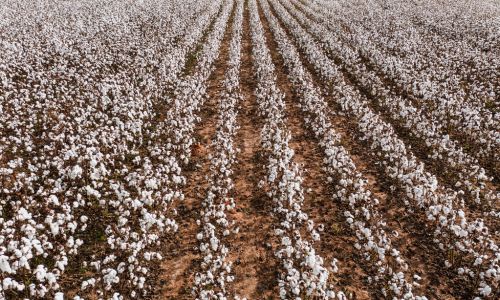Washington, D.C. — U.S. Senator Katie Britt (R-Ala.) has joined Senators Cindy Hyde-Smith (R-Miss.), Roger Marshall (R-Kans.), and Senate Agriculture Committee Chairman John Boozman (R-Ark.) in introducing the Buying American Cotton Act, designated as S.1919. The proposed legislation aims to promote the use of domestically grown cotton by offering transferable tax credits for cotton products made from U.S.-sourced fiber.
The bill is designed to support U.S. cotton growers, particularly in states like Alabama, which produces cotton in 59 of its 67 counties. In 2024, Alabama’s cotton crop was valued at over $222 million, and production for 2025 is projected at 655,000 bales.
Under the act, tax credits would be granted to the first U.S.-based entity that sells a qualifying cotton product—such as apparel, home textiles, or nonwoven goods—directly to a consumer. Eligibility for the credit would depend on several factors, including the amount of U.S.-grown cotton used, the product’s manufacturing origin, and proof of domestic sourcing.
“The Buying American Cotton Act reinforces my commitment to our cotton growers and ginners by incentivizing the purchase of U.S. cotton and by combating the illegal market practices our adversaries implement to gain a competitive advantage,” said Senator Britt.
Senator Hyde-Smith emphasized the global challenges facing U.S. producers, stating the bill is designed to give American-grown cotton a stronger foothold in a highly competitive international marketplace.
The act leverages existing cotton traceability technology, which can track fiber from field to finished product, helping ensure tax benefits are awarded accurately within U.S. supply chains.
Supporters say the legislation could become part of a larger legislative package being considered in the Senate in the coming weeks. The bill’s full text and summary are available online.
Senator Britt has consistently voiced her support for Alabama’s farmers. In 2023, she highlighted the financial challenges facing the agriculture sector, noting Alabama farmers faced the third highest increase in input costs nationwide and projected losses nearing $250 million statewide.





